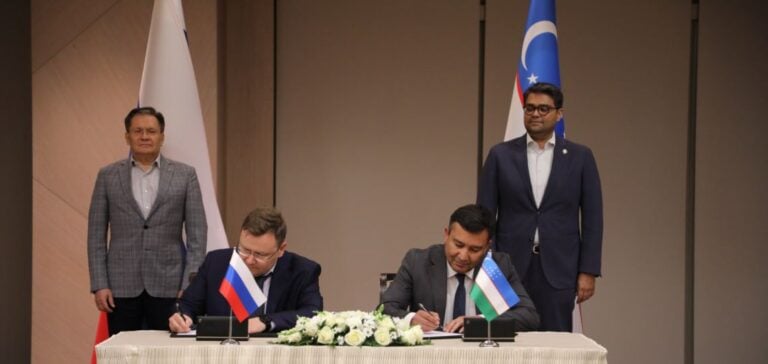Construction of the Modular Reactor (SMR) nuclear power plant in Uzbekistan is progressing apace. The project, aimed at building a six-unit power plant, will see the start of infrastructure work as early as next autumn. This initiative follows the recent signing of a memorandum of understanding between the UzAtom Atomic Energy Agency and Rosatom, marking a crucial step in energy cooperation between the two countries. The project calls for the installation of six RITM-200N reactors, based on Russian nuclear icebreaker technology. Each reactor has a thermal capacity of 190 MW, or 55 MWe, and an expected lifetime of 60 years. The first reactor is scheduled for commissioning at the end of 2029, with subsequent units coming on stream progressively.
A strategic partnership with Rosatom
The partnership with Rosatom, the Russian nuclear agency, plays a central role in this ambitious project. Andrey Petrov, Deputy Director General of Rosatom, emphasized the importance of this project in providing clean energy to the region. He also praised the skills and efficiency of the Uzbek partners in managing this complex project. Discussions during the site visit highlighted priorities, including the creation of a residential camp for construction and project teams. The plant site is located in the Jizzarkh region, where surveying and infrastructure installation work will begin in September.
Outlook and regional impact
The construction of this SMR plant marks a milestone in Uzbekistan’s efforts to diversify its energy sources and strengthen its energy independence. This project is also the first export order for Russian modular reactors. The first land-based version of this type of reactor is currently under construction in Yakutia, Russia, with launch scheduled for 2027. In 2017, Uzbekistan signed an agreement with Russia to build two VVER-1200 pressurized water reactors. Following the signing of the agreement for the SMR plant last month, Rosatom CEO Alexei Likhachev mentioned in an interview with the Rossiya-1 channel that proposals for the construction of a large nuclear power plant, with a capacity of around 2.5 GW, are still being studied in Uzbekistan. Rosatom’s involvement in this project underlines the depth of energy relations between Russia and Uzbekistan, and reinforces the latter’s ambitions in terms of nuclear development. The success of this project could not only improve the country’s energy supply, but also serve as a model for other similar initiatives in the region.






















